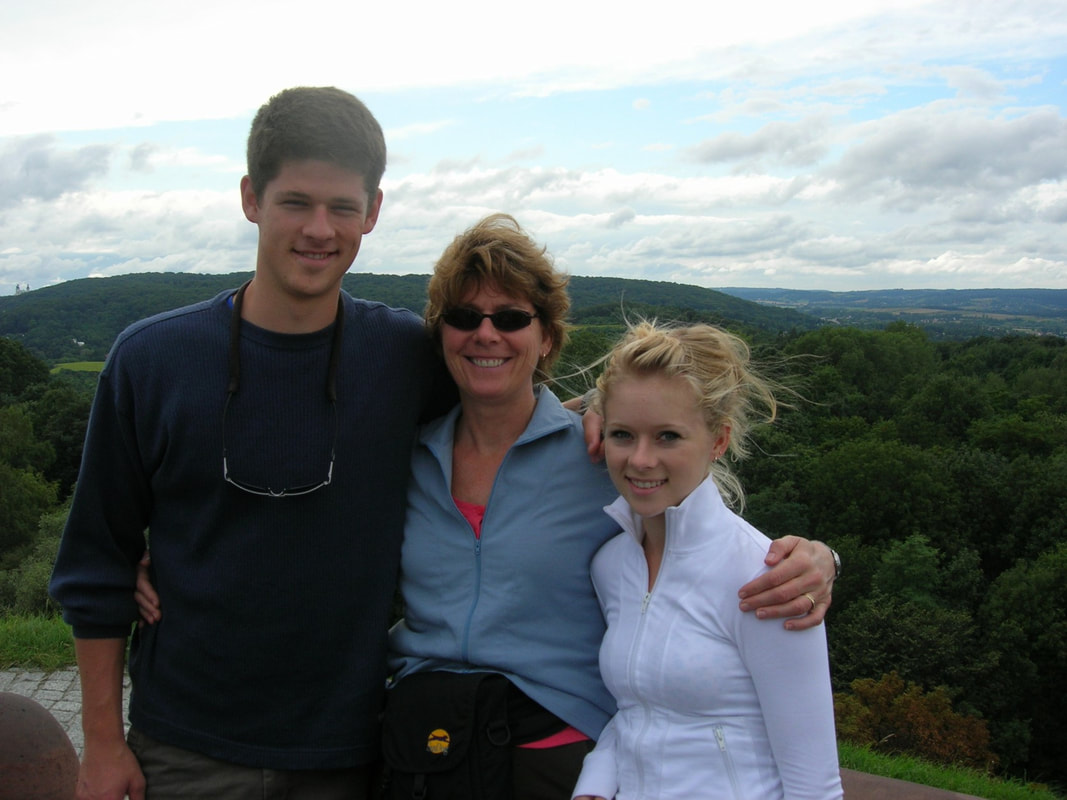Our brains are inclined to hold onto negative experiences like Velcro and allow positive experiences to slip away like Teflon. We are challenged to bring to our awareness the ‘choice’: How do we want to spend our daily dose of emotional energy? Do I wish to spend my day saturated in negativity or do I want to concentrate my energy on feeling constructive and self-assured? What I have learned is that I can end up feeling bitter or better because of my choice in perspective.
Imprinting
By most Western standards, I was emotionally neglected as a young person growing up in a typical household. I am a first-generation American with Polish parents, a Father that survived to live in Poland during WWII, and the Nazi work camp where he was engaged in forced labor. When my Mother ignored the keepsake record book, “Grandma’s Memories” I wished for her to complete for her grandchildren, my Father answered the questions on separate pieces of notepaper as ‘Grandpa’. His memories as a child growing up in a remote Polish village, which currently remains a remote Polish village, include the fact that children were not given any actual attention. No “Precious Cargo” car window stickers for him. Unfortunately for me (and for her), my Mother spent her life in a world of self-sacrifice and suffering.
I grew up in Chicago in the 1960s. I was a latchkey kid as my mother worked outside the home. Summers were especially lonely, since both my parents worked full-time day jobs. I remember taking occasional three-hour round-trip public transportation, on both bus and train, to visit my Father at downtown Marshall Field’s where he worked as a tailor in the Men’s department. Many an unsavory character I met on my journey as a 9-year old. I walked alone the few miles to Riis Park, which required crossing three busy streets. I learned how to swim, not-drown, after being regularly thrown into the deep end of the pool by my older brother, my only sibling.
I developed an awareness that my Mother hardly made eye-contact with me. Neither parent thought to ask me about my day at school or whether I had any fun. The conversation was centered on whether a chore, not homework, was completed. Mostly I remember that my everyday life with them felt as if I was invisible. My best memories are the ones that I shared with my Father when he was puttering about the garden. He would hand me some green beans, or an ear of corn and I would munch away while he talked about the bugs on the cabbage or how his feet hurt from crouching.
Life Lessons
Why this story? My history influenced who I unconsciously and consciously chose to be as a parent. Just as it did for my parents. And if I were to ask my parents if they intended to emotionally neglect me, they would be aghast at the suggestion and, in all honesty, they would probably not really comprehend the question. The same would be true for my grandparents and so on.
My story includes a current 10-year chapter of parent alienation. Without explanation and to this date, both of my children have refused all of my efforts to communicate with them.
So, what happened? As a parent myself, my mantra was that I wanted to be a different mother than my mother was to me. I wanted my children to know they were both loved and respected as individuals. I wanted them to know that they were cherished. That they were noticed. I wonder if I may have swung the pendulum too far to the other side.
Like many Mothers, I assumed primary care of my children which required primary attention to their needs and wants. I took it upon myself to encourage appreciation and consideration for others. I provided them opportunities to develop determination, grit, and perseverance. They were gifted with presents but earned age-appropriate privileges. I gave my children the tools and they have continued to challenge themselves. Nothing gave me more pleasure than to watch my children engaged in life. They had not only their ordinary needs met but their emotional needs were attended to as well. As their mother, I let them know that I held them dear.
Questioning the Outcome
Did my maternal dedication breed children seeped in entitlement as opposed to children instilled with appreciation? I am still confused.
As their mother, I wanted better for my children. My former husband grew up privileged and financially secure, on the beaches of Southern California. My father was a tailor and my mother a factory worker in a lower-class Chicago neighborhood. My former husband experienced regular family vacations around the world. My mother’s purse handles were secured with duct tape. I wanted to give my children the love and attention and respect I knew very little of while growing up. In contrast, their father wanted to provide them with material goods but not his time.
Did I just say that out loud? Can you see the struggle I may have with being bitter or better? Yes, I have had these caustic thoughts and bubbling emotions, just as anyone who felt the injustice and prejudice of parental alienation. My perspective is threatened by negative thoughts about the power of money and its dehumanizing influence on people, including my children. I can feel embittered by the fact that their father’s contributions to their financial security have superseded my motherly love for them. I could spend time ‘hating’ my Ex and thinking poorly of my children. After all, for a parent who invested so much, who wouldn’t feel aggrieved?
What does it take for me to instead, be better? I remind myself of who I am. My father collected our outgrown clothing and regularly mailed packages to families in Poland. He actively supported our local church and mended clothing for our neighbors. His innate generosity is part of my inheritance. I know that I concentrated my efforts on being the best mother I could figure out being and I followed my father’s role modeling of unselfishness. And I embodied the kind of mothering Janna Malamud Smith[1] describes as “the physicians’ instructions for ensuring infants’ physical protection that gave way to the challenge of assuring children’s emotional and cognitive perfection.” “More taxing prescriptions issued from psychologists: optimally attuned love, correctly attached love-an elusive ideal that has spelled ever more intensive mothering.”
Did I go overboard in putting my identity of motherhood front and center and therefore my children front and center? I know that I lost huge parts of myself and I further wonder if I could have encouraged a sense of privilege in my children that corrupted their development of tenderness and kindness.
I still do not have an answer or a way to understand who my children are today. What I do know is that when I take responsibility for my choices, as misinformed as they might have been, then I can define myself as someone who tried her very best despite circumstances. When I can understand that I am not in control of the outcome of those efforts, I can relieve myself of inhuman responsibility. When I am willing to release myself of unfounded guilt and shame in my mistakes and failures, I can have compassion for all other human beings in this trying world.
I was the best Mother I could be knowing what I did at the time.
That is better.
[1] Janna Malamud Smith, “Always Accountable”, https:www.nytimes.com/2003/03/09/, (March 9, 2003).


 RSS Feed
RSS Feed